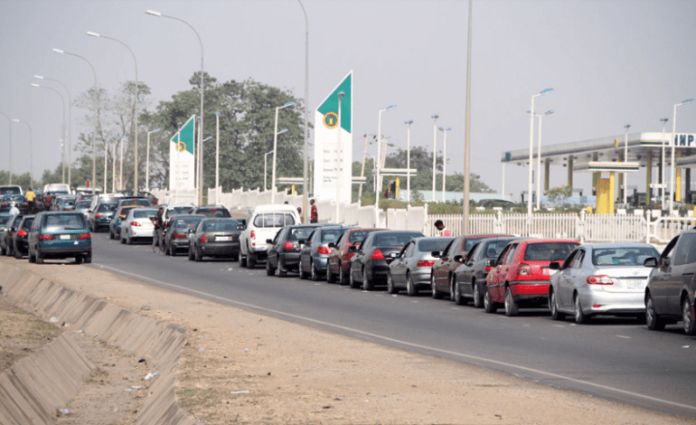By Milcah Tanimu
As petrol scarcity intensifies across Nigeria, motorists in Kaduna, Kano, and Katsina states are facing steep prices and severe shortages of the essential commodity.
distressing conditions for residents in these states, with many struggling to find petrol. Most major and independent marketers have closed their filling stations, while the few that remain open have hiked prices to between N800 and N1000 per liter, exacerbating the already dire situation.
Petrol black marketers, particularly roadside fuel hawkers, are capitalizing on the scarcity, selling a 4-liter gallon for between N5000 and N6000.
Motorists expressed their frustration and dismay at the situation. Salisu Baso, a civil servant, shared his experience: “I have to pay double the transport fare I used to pay to reach my office at the Federal Secretariat in Kawo-Kaduna. We don’t even know who to blame anymore, the government or the marketers. Urgent action is needed to address this issue, which is harming socio-economic activities.”
Mrs. Franscisca Idika, a trader at the Chechnya market in Kaduna, lamented the impact on her business: “I have to pay more now to reach the market, and we just have to increase the prices of our goods to make ends meet.”
Reports from Kano and Katsina states reveal similar situations, with higher prices and long queues at the few operating filling stations. Alao Jaremi, an IT expert in Katsina, called for urgent measures to ensure petrol availability across the country: “The government needs to take immediate action to alleviate the suffering of Nigerians.”
Malam Ibrahim Dan-Musa in Kano echoed this sentiment, urging the authorities to address the scarcity promptly.
The Nigerian National Petroleum Corporation Limited (NNPCL) and oil marketers have been trading blame for the shortage. NNPCL attributed the long queues to disruptions in the ship-to-ship loading of petrol between Mother Vessels and Daughter Vessels due to a recent thunderstorm. They also cited adverse weather conditions affecting berthing at jetties and the transportation of products to filling stations.
However, marketers claimed they were unable to access the NNPCL portal to place orders for petrol, further complicating the supply chain issues.
As the scarcity persists, Nigerians continue to hope for a swift resolution to the crisis impacting their daily lives and economic activities.

